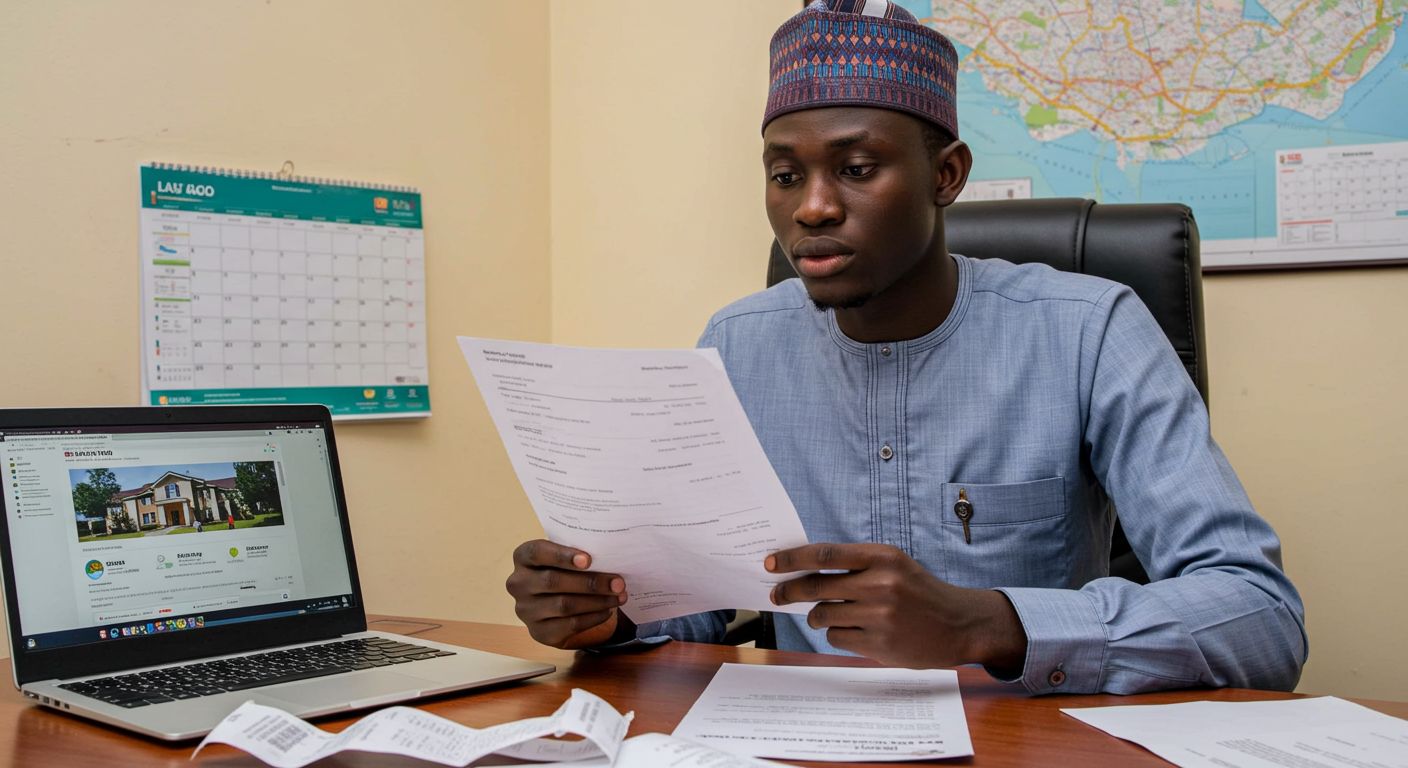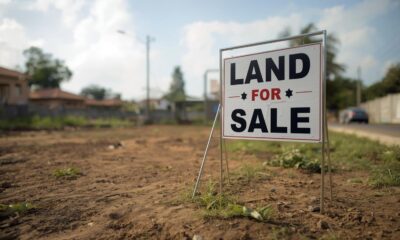Features
Dennis Isong: Who Regulates Real Estate Agents in Nigeria?

In 2021, a young banker, Kelechi, finally decided to invest in real estate. Like many Nigerians looking for better financial security, she believed that owning land or property in Lagos was a smart way to start. She met a man who claimed to be a seasoned real estate agent. His office was furnished, he dressed sharply, and he spoke like someone who had sold land to half of Lekki. He promised her a deal she couldn’t refuse in the Ibeju-Lekki axis.
Unfortunately, Kelechi didn’t know what many Nigerians don’t know: who regulates real estate agents in Nigeria and how to report fraud when things go wrong. Her money later disappeared along with the so-called agent, and all she was left with was a receipt that meant absolutely nothing.
Kelechi’s experience isn’t new or rare.
As the real estate market booms in the country, especially in urban areas like Lagos, Abuja, and Port Harcourt, its growth comes a messy sides like many unregistered, untrained, and fraudulent agents operating without checks. Unlike medicine, law, or engineering, real estate agencies in Nigeria aren’t tightly regulated at the federal level. This lack of a national standard makes it easy for just about anyone with a business card and a smartphone to pose as an agent. However, that doesn’t mean the industry is completely lawless. Understanding the system and how to protect yourself can save you millions.
How is the real estate agency in Nigeria regulated? What can you do if you’ve been scammed or suspect foul play?
State governments, professional bodies and agencies have tried to introduce structure. Lagos State, for instance, has taken a bold step through the Lagos State Real Estate Regulatory Authority (LASRERA), established to sanitise the industry, especially given the increasing reports of land scams and fraudulent agents. Many Nigerians do not know that such a body exists. And even fewer understand how to verify an agent or report wrongdoing.
Regulation of real estate agents depends largely on your location and the kind of property transaction you’re entering into.
In Lagos, LASRERA is the key regulator. Established under the Lagos State Real Estate Regulatory Authority Law, LASRERA maintains a register of certified practitioners and developers. Its goal is simple is to protect the public from exploitation by monitoring, regulating, and even prosecuting defaulters in the sector.
Outside Lagos, some states are beginning to replicate similar models, but most are still lagging.
At the national level, professional bodies like the Nigerian Institution of Estate Surveyors and Valuers (NIESV) and the Estate Surveyors and Valuers Registration Board of Nigeria (ESVARBON) regulate licensed estate surveyors and valuers. These are professionals who undergo years of training and certification. Unfortunately, the average street-level agent who helps you find a plot of land or a rental apartment is often not registered with any regulatory body. That’s where problems lie.
Common Real Estate Frauds in Nigeria
One of the most common scams is multiple allocation. A single plot of land is sold to multiple buyers. In some cases, buyers only realise the scam when they start building and someone else shows up with a conflicting deed. Then there’s false documentation. Some agents forge documents like receipts, survey plans, and a fake Certificate of Occupancy (C of O). They bank on the buyer’s ignorance or desperation to close the deal quickly.
Another subtle scheme is overpricing and misrepresentation. An agent may hike prices or lie about proximity to major developments just to make a deal sound juicier than it is. What makes these scams easy? The average buyer rarely asks for proof of registration. Many people trust too quickly, especially when the agent speaks with confidence. But confidence is not a license.
How to Report a Fraudulent Real Estate Agent in Nigeria
If you’re in Lagos, start with LASRERA to check if an agent is registered. If you’ve already been scammed, you can submit a formal complaint through the website or walk into their office at Alausa, Ikeja. LASRERA investigates complaints and can prosecute agents found guilty.
If the agent is a licensed estate surveyor, report them to NIESV or ESVARBON. Both bodies take disciplinary action against registered professionals who breach the ethics of the profession.
You can also report fraud to the Nigeria Police Force. They are particularly concerned when the scam involves forgery, impersonation or threats, and EFCC (Economic and Financial Crimes Commission), particularly if the fraud involves large sums or wire fraud.
Keep all evidence: receipts, chats, bank transfers, location maps, and signed agreements. Even WhatsApp voice notes. They may seem small, but they are very useful in proving your case. In Nigeria, where legal battles are slow, your documentation is your biggest asset.
But always verify the agent’s registration. For Lagos residents, LASRERA’s database is available online. Don’t take anyone’s word for it. A genuine agent won’t feel offended when asked to show proof of registration or credentials.
Avoid making payments in cash or to personal bank accounts. Legitimate firms have corporate accounts with traceable records. Engage a property lawyer or real estate consultant. Yes, they charge a fee, but it’s cheaper than recovering from fraud. Take your time. Pressure is a common tactic used by fraudsters. They’ll say, “Another person wants to buy it this week.” But any investment that doesn’t give you time to think is already suspicious. Talk to people who’ve invested before. Personal referrals remain one of the most powerful tools in Nigerian real estate.
























